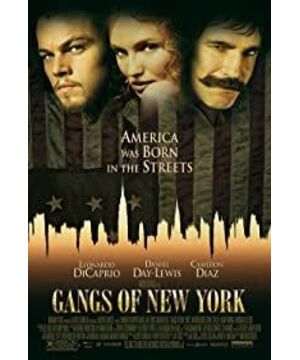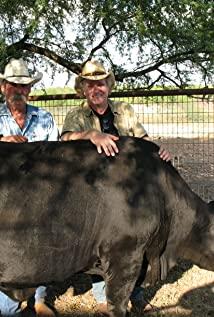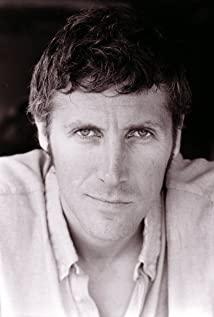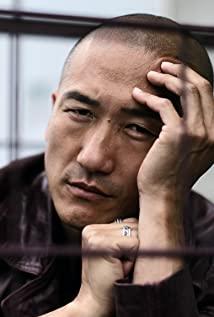Some people accuse the director of his "anti-American" tendency, saying that liberal intellectuals in the United States have always had a tradition of anti-government, and deliberately smeared the glorious history of the Civil War period. You must know that it was the year of the New York riots. The famous saying is sonorous: of the people, by the people, for the people! (1864) I don't think Scorsese is anti-American. The slogan of "Gangs of New York" is: "New York was born on the streets." The purpose is very clear, that is, to reveal the truth that "behind civilizations are slaughterhouses". The so-called "No power comes first, no power comes second", all powers rely on shirtless battles, with countless lives in exchange, no power, only the life of being slaughtered. The boss in the film said: "You can hire half the poor at any time and kill the other half." Behind the grand history is full of killing. In fact, the Chinese are no strangers to this. "Cultural Revolution", such a grand oracle, the red ocean means a sea of blood. The rediscovered old history of "cannibalism" during the Cultural Revolution in Guangxi really devoured the capitalist roaders! So I came out of the theater and said to my friends: What kind of cruelty is this? If someone really used the same method to film the Cultural Revolution, it would be called thorough!
Scorsese has made some classic "violent" films such as "Taxi Driver" and "Raging Bull". "Gangs of New York" has pushed the display of violence to the extreme, and some critics even said that the violence of the film is as gorgeous as an opera. It's hard for me to understand how the opera is violent, let's call it "gorgeous violence". It's true that violence becomes an outright show. Stimulate the viewer's senses and primitive desires.
Intellectually, how did the "slaughterhouse" logic of struggle forge the United States today? The film ends with a series of overlapping shots, and New York in 1864 gradually transformed into a bustling international metropolis. It only gives the audience a false sense of vicissitudes. There are no clues in the film about how the United States has passed through this stage (this depends on Mr. Linda's book). Naturally, this is not an answer that a film director must give. On the contrary, I prefer the ending of "Heroes of Heaven and Earth", replacing "dou" with "harmony". The realm is higher than that of "Gangs of New York". Unfortunately, from the point of view of the film, it is a failure.
View more about Gangs of New York reviews











